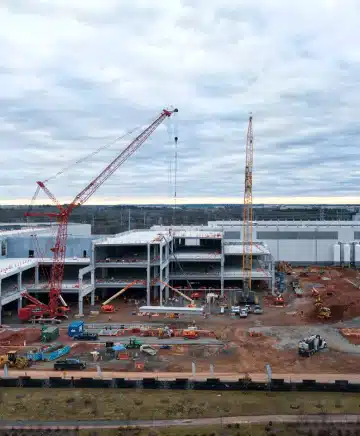If you’ve ever wondered who’s behind the numbers in construction projects—figuring out how much materials, labor, and equipment will cost—you’ve likely been thinking about the role of a construction estimator. These professionals play a critical part in turning construction ideas into reality. Let’s dive into what a construction estimator does and why their work is essential to any building project.
The Role of a Construction Estimator
At its core, a construction estimator is responsible for predicting the cost of a construction project. This involves a detailed process of calculating how much it will cost to complete a project from start to finish. The estimator provides the client, contractors, and other stakeholders with an accurate, reliable estimate of what the project will cost. This can include everything from materials and labor to equipment and subcontractor services.
Key Responsibilities
- Project Evaluation
A construction estimator starts by evaluating the project’s plans and specifications. This might include blueprints, architectural drawings, and technical documents. Understanding the scope of the project is essential to figuring out the materials, labor, and other resources required. - Material Takeoff
One of the first tasks for an estimator is a “material takeoff,” where they calculate the quantities of materials needed for the project. This involves reviewing the architectural and engineering drawings to determine how much concrete, steel, wood, or other materials are required. - Cost Calculation
After identifying the materials, the estimator then calculates their cost. They also estimate the labor costs, accounting for the number of workers required, their hourly rates, and the time it will take to complete tasks. Other costs, like equipment rentals and transportation, are also factored in. - Subcontractor Coordination
For larger projects, an estimator may need to get quotes from subcontractors who will handle specialized work like electrical, plumbing, or HVAC. Estimators ensure these quotes are included in the overall estimate and align with the project’s budget. - Risk Assessment and Contingencies
Every construction project has its uncertainties. A good estimator will also assess potential risks, such as delays, unforeseen complications, or fluctuating material prices, and build contingencies into the estimate to account for these risks. - Bidding Process
In many cases, estimators are involved in the bidding process. After preparing a detailed estimate, the estimator helps contractors submit competitive bids to win projects. Their work can make or break a contractor’s chance of landing the job, as clients are often looking for the best value for their money. - Collaboration and Communication
Estimators collaborate with architects, engineers, project managers, and clients throughout the project. This communication helps to clarify project details, adjust estimates as plans evolve, and ensure the project stays within budget.

The Skills and Knowledge a Construction Estimator Needs
To be successful, a construction estimator needs a solid foundation in various areas:
- Mathematics and Analytical Skills: Construction estimators must be comfortable with numbers, as they perform complex calculations to determine material quantities, costs, and labor hours.
- Construction Knowledge: A deep understanding of construction methods, materials, and processes is essential. An estimator needs to know how to read construction plans and drawings accurately.
- Attention to Detail: Accuracy is critical—small errors can lead to cost overruns or project delays. Estimators must meticulously check their work to ensure every aspect is considered.
- Time Management: Estimators work on multiple projects simultaneously, often with tight deadlines. Effective time management helps them keep projects moving forward on schedule.
- Communication Skills: Since estimators work closely with various stakeholders, including clients, contractors, and subcontractors, being able to communicate estimates clearly and effectively is key to their role.
Why Construction Estimators Matter
Construction estimators are the unsung heroes of the construction world. Their detailed and accurate estimates ensure that projects are financially viable and completed within budget. Without an estimator’s work, projects could easily run over budget, resulting in costly delays and potentially jeopardizing the success of the entire project.
By providing detailed cost analysis and identifying potential risks, estimators help businesses plan for the future. Their work lays the foundation for every stage of construction, helping to guide a project from an idea to a finished structure—on time, and on budget.
In short, a construction estimator ensures that a project will not only be feasible but also cost-effective. They balance precision with creativity, making them invaluable to the construction industry. So, next time you see a new building or renovation taking shape, remember the estimator behind the scenes, making sure everything adds up—literally!
Follow Amundson Group on LinkedIn to stay up to date on the latest!





